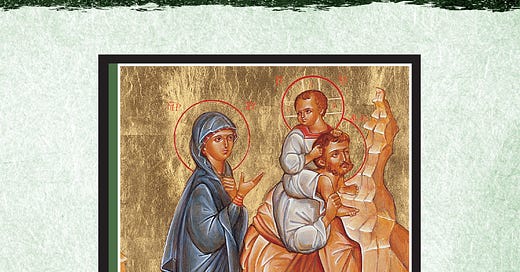(This essay marks the beginning of a new series, “Holy Helpmates: Successful Male-Female Partnerships Through the Ages.” The collection of essays is already available in book form. These essays were …
Keep reading with a 7-day free trial
Subscribe to My Secret is Mine to keep reading this post and get 7 days of free access to the full post archives.




